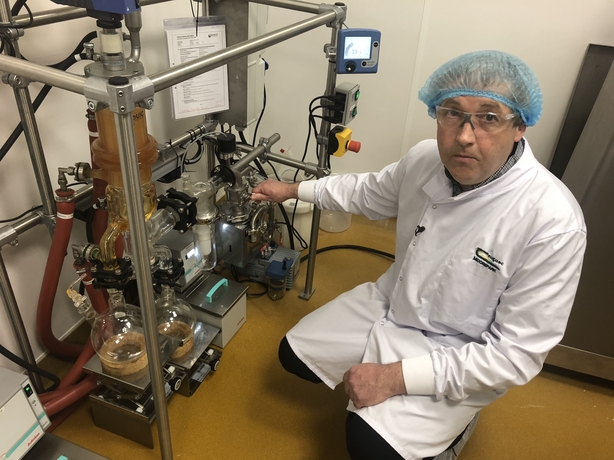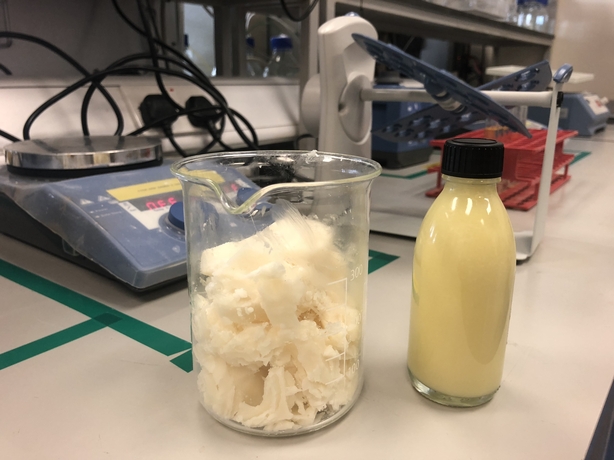Scientists in Cork have developed a way of making the fat in cow's milk closely resemble the fat in a human mother's breast milk.
The discovery is important as it will make infant milk formula more tolerable for babies and reduce the use of environmentally damaging palm oil in its manufacture.
It could also in time give a competitive edge to the dairy industry and farmers here, as 15% of the world's infant formula is manufactured in Ireland.
The development was made by scientists at Teagasc and Food for Health Ireland (FHI), an Enterprise Ireland Technology Centre made up of seven publicly funded research organisations here that are supported by five of the biggest Irish dairy companies.
There is still a wide recognition across the scientific and medical communities that when it comes to infant nutrition breastfeeding is best.
But in order to help mothers and babies who cannot breast feed, researchers have for some time been working to make infant formula more closely resemble breast milk.
"Infant milk formula reflects in many ways the complexity of human breast milk," said Dr Sean Hogan, Principal Investigator, Teagasc Food Research Centre in Fermoy.

"But admittedly we can't get there all the way because of the complexity of breast milk."
The formula currently for sale uses blends of vegetable oils that are designed to provide the infant with a fatty acid composition similar to that of human milk.
However, these oils are structurally different to those of breast milk and this is problematic as human milk fat plays an important role in infant nutrition, preventing constipation, blockages and discomfort.
"The specific structure of mother's milk is very good for the digestive comfort of babies," said Jens Bleiel, CEO of Food for Health Ireland.
The vegetable oil blends also require large volumes of palm oil, which is considered environmentally unsustainable.
This is because large areas of rainforest have been destroyed to make way for palm oil plantations, leading to a loss of habitat and carbon sinks.
But working with FHI and dairy industry partners, researchers at Teagasc's Moorepark campus in Fermoy have developed a milk fat product for use in infant formula production which replaces a significant amount of the palm oil content with cow's milk fat.
"What it requires is a specific refinement here in the labs in order to come to the same structure we find, or similar structure we find in mother's milk," Jens Bleiel said.
"And that is the research we have been doing here for four years now, and we have now created a new fat blend coming from cow's milk that resembles the lipid structure of mother's milk."
The team used enzymes that rearrange the fatty acids into a new structure that is a better reflection of human milk fat.

"What we have done is gone a significant amount of the way to getting the oil part of infant milk formula to more closely resemble human milk fat," said Dr Hogan.
"We've also tried to do that in a cost-effective way and in a way that is economically viable and that we can reuse enzymes to bring the cost down."
The researchers now plan to work with their industry partners to find a way of integrating their new milk fat product into infant formula production in a commercially sustainable manner.
If this can be achieved, the new product would give the Irish dairy industry and its milk suppliers a significant edge, both in terms of product quality and its environmental sustainability.
